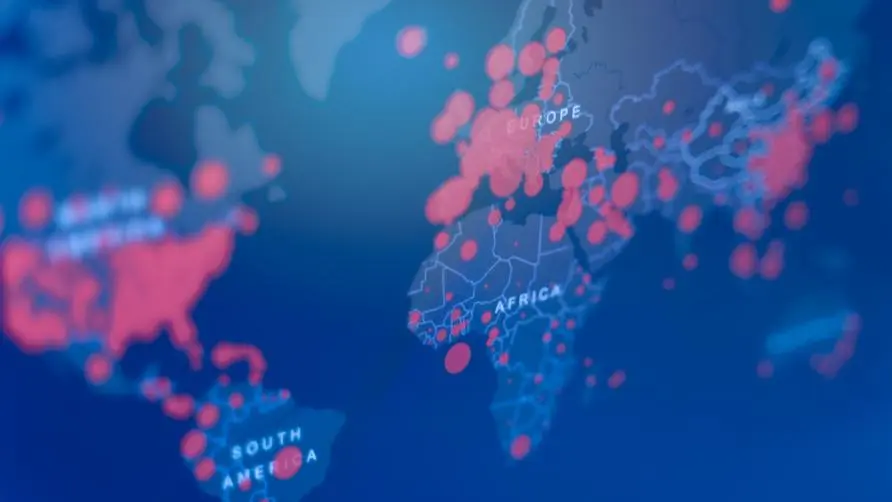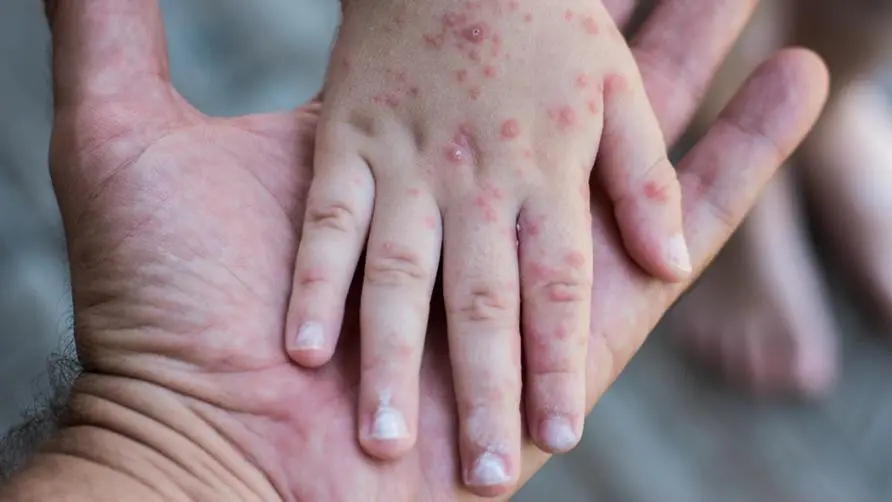Monkeypox virus outbreak? Routes of infection and symptoms? Will it become highly spread from person to person?

Monkeypox virus outbreak? 120 new cases worldwide in the past week
With cases of monkeypox appearing in various countries around the world, do you need to worry about it turning into the next major outbreak? The international authoritative journal “Nature” reported that in the past week, more than 120 confirmed or suspected cases of monkeypox have been reported in 11 countries and regions outside Africa. , this is a very rare viral infectious disease outside Africa. The recent cases are not in areas where monkeypox was endemic in the past, which has aroused the vigilance and concern of scientists.
Anne Rimoin, a professor of epidemiology at UCLA who has studied monkeypox in Congo for more than ten years, said that the recent cases of monkeypox transmission are quite shocking. The name “monkeypox” comes from the fact that researchers first discovered the virus in monkeys in the laboratory in 1958, and it is thought that rodents spread it to humans. On average, thousands of cases of monkeypox occur in Africa each year.
The total number of cases outside Africa in the past week has exceeded the cumulative number of cases since the virus was first discovered to cause disease in humans in 1970. The speed of spread has made scientists extra vigilant.
However, Jay Hooper, a virologist at the U.S. Army Medical Research Institute of Infectious Diseases, believes that unlike the SARS-CoV-2 virus, monkeypox is not easily transmitted from person to person and is closely related to the smallpox virus. There are antiviral treatments and effective vaccines that can reduce the risk. spread.
Monkeypox infection routes and symptoms? Is it difficult for DNA viruses to spread on a large scale?
The infection route of monkeypox is mainly through close contact with body fluids (such as saliva produced by coughing), and it can cause lymph node swelling and cause special liquid-like lesions on the face, hands, and feet. Most people will develop it within a few days after infection. Recovery occurs within weeks and no treatment is required.
On May 19, Portuguese researchers uploaded the first data on the detection of monkeypox virus genes this year. It can be initially seen that the virus strain is related to the monkeypox virus strain found in West Africa. Compared with the Central African virus strain, symptoms are milder and fatal. The rate is lower. However, it remains to be clarified whether the monkeypox virus strains currently circulating in different places are different, and whether cases in various countries are related.
Some researchers wonder whether the monkeypox virus has mutated, making the virus more contagious than in the past. Raina MacIntyre, professor of infectious diseases at the University of New South Wales in Australia, said that viruses that can cause large-scale infections, like SARS-CoV-2, are RNA viruses in shape, while monkeypox is a DNA virus and is less likely to suddenly become highly human-like. The ability to spread from person to person.
Even so, monkeypox has been found in people with no obvious chain of transmission in various places, indicating that the virus may continue to be transmitted silently. Andrea McCollum, a scientist at the US CDC virus team, reminded that the sudden increase in monkeypox cases is cause for concern, although infected people will have obvious skin lesions. However, once it becomes asymptomatically contagious as the new coronavirus, it may make it more difficult to trace the source of the virus.
In addition, scientists are also beginning to explore why the current monkeypox cases occur in men aged 20-50, and most of them have sex with men. Rimoin pointed out that monkeypox is not transmitted through sexual intercourse, but sexual intercourse can be accompanied by close contact. A possible explanation is that the monkeypox virus accidentally entered the social circle of men who have sex with men and continued to cause infection. More complete and strict contact investigation is needed to determine the source of transmission and risk factors.
Vaccinating close contacts can interrupt monkeypox transmission chain
Monkeypox is one of the viruses that scientists have focused on since smallpox was eradicated in 1970. However, since vaccinia vaccination has been discontinued, more and more people have weakened immunity to the related viruses, or have not received the vaccinia vaccine at all since birth. In the past 40 years, monkeypox infection has been mainly distributed in African countries such as Congo and Nigeria. In 2003, an epidemic in the United States infected more than 70 people due to imported animals.
Overall, vaccines and antiviral treatments are effective weapons against monkeypox. However, the public health system may use methods similar to “ring prevention” to suppress the spread of monkeypox virus, which means close contact with monkeypox-infected people. People should be vaccinated to block the spread of the virus.
McCollum believes that so far, monkeypox infection is still relatively rare, and there has not yet been a need to change the strategy against monkeypox virus. But scientists will continue to monitor the spread of monkeypox.
source:
Monkeypox goes global: why scientists are on alert
Further reading:





